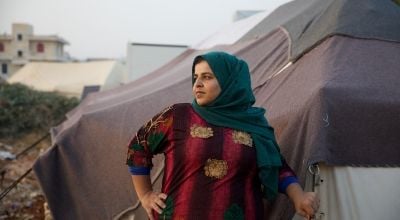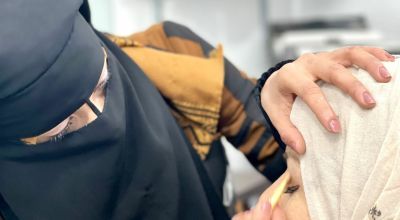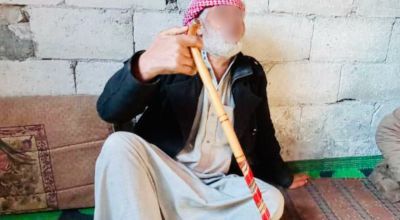
Read our 2024 annual report

Knowledge Hub
Back to school for Syrian refugee children in Turkey
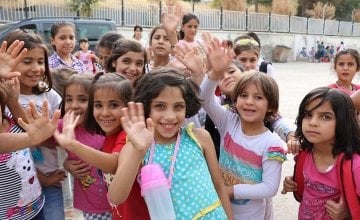
There are over two million Syrian refugees in Turkey, over 700,000 of whom are children according to a recent Human Rights Watch study. Among school-aged children, access to school is severely restricted with an extremely high proportion of children now having missed up to three years of education.
Concern Worldwide is working with European Commission's Humanitarian and Civil Protection Department (ECHO) to address this problem, providing educational opportunities for thousands of children in temporary education centres (TECs) in Turkey.
I recently visited one such education centre in south-eastern Turkey. Students from both Turkey and Syria studied at the school. It’s called double-shifting: in the morning, Turkish students come to study; in the afternoon, it’s the turn of the Syrian children.
Yet some students also spend many hours before and after school working to earn money for their families; and many don’t come to school at all for the same reason. That alarms Syrian teacher Farah Ibrahim*.
"If children don’t go to school, we are going to have a very bad future and a lost generation."
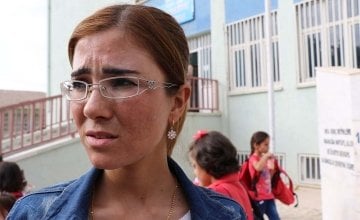
It’s increasingly recognised that the provision of educational opportunities is urgently needed to prevent Syrian refugee children from becoming a “lost generation”. Additionally, enabling children to return to school is a crucial part of “normalising” life after crisis and is important in addressing psychosocial impacts. Going back to school gives the youngsters a routine, the chance to play with others and just be normal children. Syrian teacher Abdul Hussain* says most children attending have some kind of psychological problems because of what they’ve been through Syria.
You always feel that children are somehow absent, and lack attention, like something is missing. Any unusual loud sound they hear, which they think is a bullet or a bombing, they start screaming and show a very unusual fear…you have to realise, they are still young children.
Children of Peace
With funding from the European Union’s Children of Peace Initiative, Concern has been enabling thousands of Syrian children to restart their education in Turkey this year. In collaboration with the Turkish Ministry of Education, this emergency education programme has established temporary education centres in existing Turkish school buildings for Syrian children to be taught in accordance with a revised Syrian curriculum. The programme aims to get more Syrian children back to school, to give Syrian teachers incentive payments and training, to provide psychosocial support for the children, as well as providing teaching and learning supplies. The children also receive classes in Turkish in order to help them better integrate into Turkey.
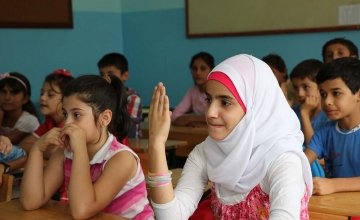
Syrian school principal, Fadil Ahmadi*, says the project has brought a new sense of hope to the refugee community:
Our children were lost. You brought them from the street to the schools, you have been wiping their tears, you gave them a chance, and with Concern, I am sure that they have a better future
And as for the children:
“We like to come to school very much. We like the teachers, the school, our books and friends,” twin sisters tell me happily.
“I’m very happy to be back at school; I can get an education and I can study with my friends – even those I used to study with before,” says another young boy.
*All names have been changed for security purposes
You can help
You can support our emergency response work by donating today.



